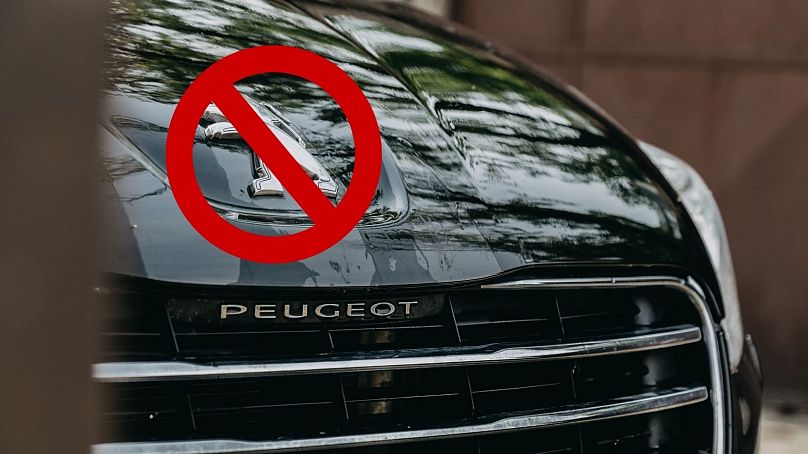Environmental warnings, like those for junk food, will be included in the adverts in a bid to hit France's climate targets.
Car advertisements in France must soon steer people towards greener transport options.
 ADVERTISEMENT
ADVERTISEMENT
 ADVERTISEMENT
ADVERTISEMENT
The new law will kick in for car manufacturers from March, as President Macron seeks to clamp down on the country’s air pollution.
France is striving to cut greenhouse gas emissions by 40 per cent by 2030 compared with 1990 levels, and supporters believe this regulation is a step in the right direction.
Car companies will have their pick of three slogans to include in TV, radio, print and online adverts: “on a daily basis, take public transport”, “consider carpooling”, or “for short journeys, walking or bicycling is preferable.”
They must also use the hashtag #SeDéplacerMoinsPolluer at the end of the message, which translates as “move and pollute less.” Companies who fail to include the environmental warning will face fines of up to €50,000 per advertisement.
How do the discouraging adverts fit into France’s climate plans?
The new law is one of a number of measures France is implementing to help meet its climate targets. Macron has also increased the maximum ecotax on buying cars that emit high levels of greenhouse gases from €30,000 to €40,000 - with the ceiling set to rise again to €50,000 in 2023.
Adverts will stop altogether for vehicles emitting more than 123 grams of CO2 per km in 2028 - delayed due to pressure from the car sector. And no more petrol-driven vehicles will be sold in the country from 2035.
More localised measures have been in place for years. Strasbourg was the first European city to use an ‘intelligent traffic management system’, reducing the number of stop-and-go waves along its roads. This cut dawdling vehicle emissions of harmful nitrogen oxide and particulates by 8 per cent and 9 per cent respectively.
While in Paris, mayor Anne Marie Hidalgo has experimented with a range of traffic-tackling rules, including banning diesel vehicles made before 2006 from the city on weekdays.
What is the reaction in France?
Macron’s latest move follows long-term campaigning from WWF and other groups - including a report which found that €1.8 billion was spent promoting SUVs in France in 2019. The NGO claims that the SUV is the second biggest driver of greenhouse gas emissions over the last decade, only behind aircraft.
Isabelle Autissier, chairwoman of WWF France, says the gasoline-guzzlers fill “advertising space to the detriment of the vehicles of tomorrow. It cannot continue. In order to slow this trend, the government must act by banning advertising for the heaviest vehicles and reorienting it.”
The decision to include warnings with adverts rather than ban them outright (yet) was seen as a compromise.
And it’s not just the worst offenders that will come with a caveat. Peugeots, Renaults and other common French cars will have to adhere to the advertising. It’s similar to the health warnings on food and drink adverts in the country - which advise people to “avoid eating too much fat, sugar or salt.”
One French car manufacturer boss appears to be taking it more or less in his stride. “I am taking note, we will adapt,” Lionel French Keogh, chief executive of Hyundai France told Agence France-Presse.
“Zero-emission transportation is the future,” he said, adding it was “a little counterproductive” for electric vehicles to have to carry the message too.
“Decarbonising transport is not just switching to an electric motor,” minister of the ecological transition Barbara Pompili tweeted. “It also means using, when possible, public transport or cycling.”











